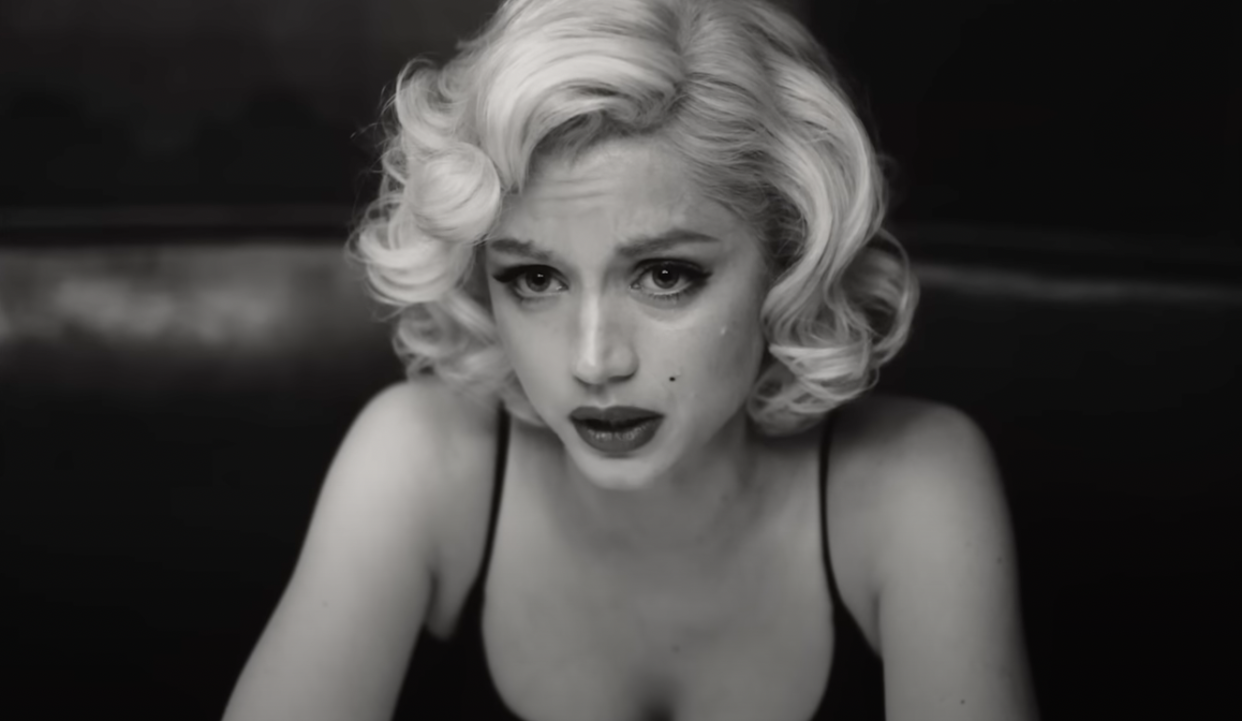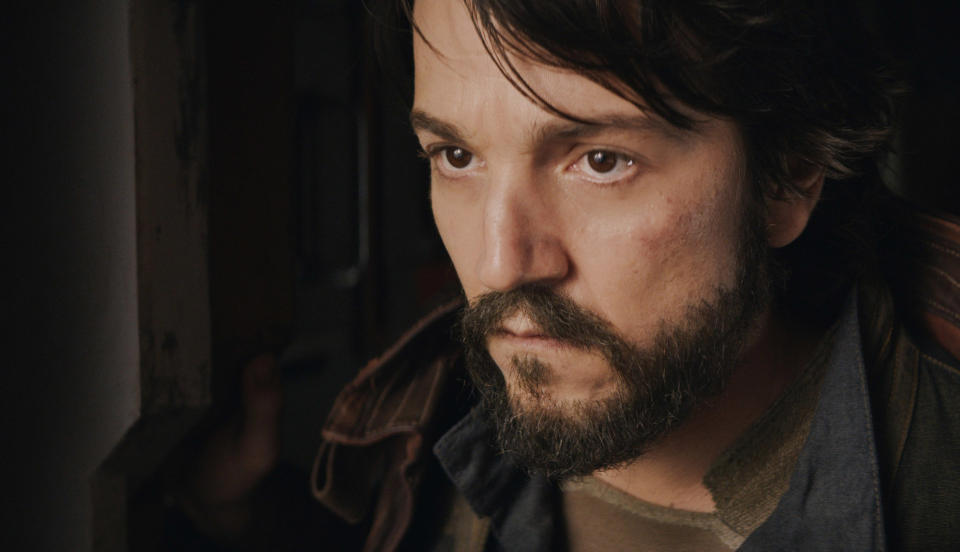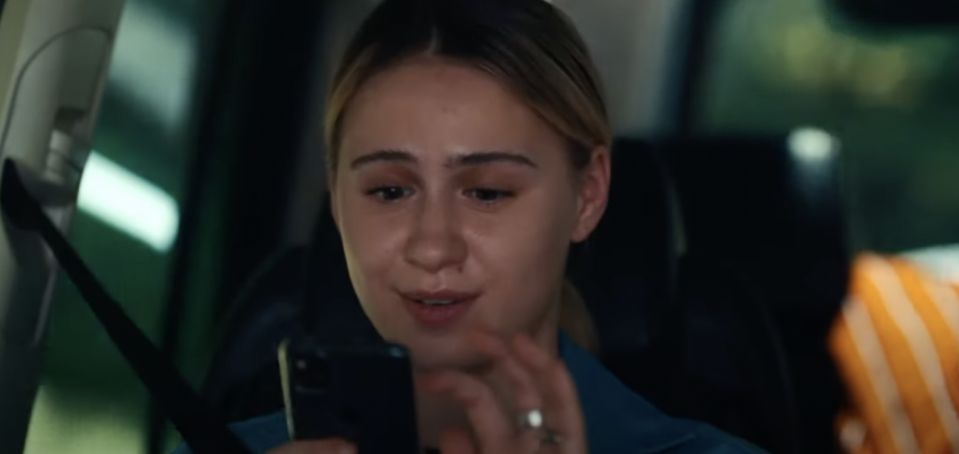From ‘Blonde’ to ‘Star Wars,’ Hollywood Needs to Accept Actors’ Accents (Column)

- Oops!Something went wrong.Please try again later.
- Oops!Something went wrong.Please try again later.
- Oops!Something went wrong.Please try again later.
- Oops!Something went wrong.Please try again later.
- Oops!Something went wrong.Please try again later.
Last week, I was prepared to devote this column to the backlash over Ana de Armas apparently retaining her Cuban accent in the trailer for “Blonde,” but the Warner Bros. Discovery decision to cancel “Batgirl” sent me in another direction. The delay was well timed: The discourse over which actors get to play certain roles, specifically within the Latino community, gained another wrinkle when John Leguizamo lashed out at the news that James Franco had been cast as Fidel Castro.
Addressing the nuances of a sensitive cultural landscape is tricky when these mini-scandals demand case-by-case assessment. Most people haven’t seen “Blonde” yet (including me) so who’s to judge the end result? And yes, Franco looks like Castro, but Leguizamo’s point about the dearth of opportunity for Latino actors stands.
More from IndieWire
All the Details on Andrew Dominik's NC-17 Marilyn Monroe Portrait 'Blonde,' Starring Ana de Armas
Marilyn Monroe Estate Defends Ana de Armas Casting Amid 'Blonde' Accent Backlash
No question, actors pretend to be people different from themselves. The tension in these stories stem from another fact: Actors with non-American accents remain stigmatized in Hollywood, even among those who find success with them. (De Armas and Leguizamo were unavailable for comment, but Leguizamo had plenty to add on his Instagram, below.)
View this post on Instagram
A few weeks back, Jamie Lee Curtis inadvertently slagged de Armas, her “Knives Out” co-star, when she said that during her first meeting with the actress she assumed “because she had come from Cuba, that she had just arrived. I made an assumption that she was inexperienced, unsophisticated young woman.”
That bias toward accents, conscious or otherwise, has lingered in the industry for years. “When I was very young, like 20 years ago, there was a whole conversation about losing your accent,” Mexican actor Diego Luna told me this week. “They used to call it ‘neutralizing,’ as if it was something you could just get rid of. It was a fear of understanding.”
Luna called me from Mexico City after completing a media blitz to promote the upcoming Disney+ series “Andor,” where he reprises his role as the “Star Wars” rebel he first played in “Rogue One.” The fantasy context of the movie and the series meant that he was able to get around any practical questions about the way he spoke. “It wasn’t a decision to keep my accent. If they hire me, I come with this,” he said. “But when they cast me, they’re clearly sending a message that they’re trying to represent a similar world to the one we experience, where people talk differently and have rich cultural and language diversity.”
In the years since Luna and his pal Gael Garcia Bernal broke out with “Y Tu Mama Tambien,” the pair have gotten past the pressure to alter their accents for the sake of better jobs. “I still hear about some projects that think in that very old-fashioned way,” Luna said. “I know they are around. But it doesn’t feel like they’re the majority now. I think everyone that talks to me is sensible on this.”

Lucasfilm Ltd.
Luna argued against another trope that stigmatizes accents: the tendency to have actors speak in accented English in situations where the characters should realistically talk in their native language. “I did many of those, but would not do them again,” he said. “Let’s make sure when they are at home talking to their kids that they also speak that language they would be speaking there. I don’t want to make anyone feel bad about this, but let’s put it from my perspective. I want to be respectful to the story and the context of the characters.”
He noted that the resistance to using foreign-language over accents has been negated by the popularity of foreign-language shows, including his own “Narcos” on Netflix. “It’s much bigger in countries where they speak languages other than Spanish,” he said. “The show was huge and people were watching it with subtitles.”
As for Leguizamo’s complaint over the Franco casting, Luna was reticent to weigh in. “It’s dangerous, because there are two parts to the conversation here,” he said. “You should be able to explore and get yourself into whatever challenge you want to try. That’s what acting is about. But this particular case is another thing. It’s the amount of opportunities a community has to work. I don’t think where you come from should restrict you from anything in terms of what challenges you can try.”
Luna, who stars with Bernal in the upcoming Spanish-language Hulu series “La Máquina,” is optimistic for international actors about the industry’s direction. “We can’t generalize and say, ‘The whole industry is doing this to us,’” he said. “The industry is full of very sensible people I meet every day trying to transform things and make things better. The debate is getting richer and much more interesting. I experience the change every day — otherwise, I would be doing theater in Mexico and not even bother.”
Of course, Luna has been at this game for years. He said no one approaches him with the assumption that he could Americanize the way he sounds. It’s become as much a part of his public-facing brand as Arnold Schwarzenegger. “I’m not someone who can actually pretend to be a native English speaker,” Luna said. “I wouldn’t even try.”

screenshot/A24
The challenge is different for newcomers like Maria Bakalova. When I first met the breakout star of “Borat Subsequent Moviefilm,” she was a new arrival from Bulgaria and uncertain how much her accent would limit her opportunities.
Now, she’s one of the Gen-Z stars of the A24 horror-comedy “Bodies Bodies Bodies” and will show up as Cosmo the Spacedog in next year’s “Guardians of the Galaxy Vol. 3.” This week, it was announced that Bakalova would star in Sofia Coppola’s now-filming “Fairyland” in addition to Netflix’s “Unfrosted” opposite Jerry Seinfeld. Bakalova’s thick Eastern European accent remains intact for these roles (in “Guardians,” she’s expected to sound Russian; Cosmo is an homage to Laika, the first dog in space). However, she said she has been taking classes to adapt an American accent.
“I will definitely keep my accent forever because that’s my authenticity,” she said. “I’ll try as much as possible to get this American accent that’s so dreamed about. But at the end of the day, I think it’s important to keep my accent. Huge respect to production companies pushing for this diversity.”
She was excited by the hints of Cuban in de Armas’ Marilyn Monroe from the “Blonde” trailer. “I think Ana de Armas is an incredibly talented actress and that’s what should matter,” she said. “It sounds like she has her natural accent and it should be about the feeling you get from the performance. There are accents in the world that have been kept from us, including my personal one, for so long. Having the chance to play somebody and just do your best at it is a phenomenal achievement.”
I grew up in an immigrant household where accents were part of the day-to-day experience. If you did, too, then you probably find this conversation self evident: Accents should be threaded into storytelling in film and TV, regardless of whether they have been assigned a specific reason for being part of a plot. Diversity is not just a question of what people look like.
Yet accented performers often remain ostracized, even when they find success. This stems from deep-seated biases, ones that many filmmakers and industry gatekeepers may harbor without realizing it, simply because it’s a departure from the world they know. As hidden biases go, this one is pushing back on a huge opportunity that can even impact the bottom line. Hollywood wants audiences who hope to see some version of themselves onscreen, but the truth is that they want to hear themselves, too.
If you’re a filmmaker, actor, agent, casting director, or someone else with strong feelings on this subject, I’d love to hear from you: eric@indiewire.com
Last week’s column on the “Batgirl” situation elicited some compelling responses. I’m including one, from an actor who appeared in a minor role in the film but requested anonymity, below:
I felt a considerable amount of comfort (and sincere sadness) reading your excellent article and the examination of this whole nightmare. The multiple streaming avenues and their vague guarantees appear anything but secure.
I am very offended by what happened and feel terrible for the directors and Leslie Grace, who were all wonderful to work with, as well as all of the technicians. It was an enormous, rewarding challenge to make this movie during Covid, and during the cold weather in Glasgow.
None of these things matter to an imbecile like [Warner Bros. Discovery CEO David Zaslav]. His cowardice is breathtaking. I am glad I got to participate and I wish the best for all those involved — except the suits at Warner Brothers. But they all get replaced sooner than later.
—Anonymous
Read previous columns by Eric Kohn here.
Best of IndieWire
All the Details on 'Hunger Games' Prequel 'The Ballad of Songbirds and Snakes'
Quentin Tarantino's Favorite Movies: 40 Films the Director Wants You to See
Sign up for Indiewire's Newsletter. For the latest news, follow us on Facebook, Twitter, and Instagram.

